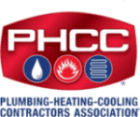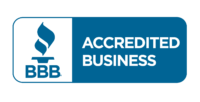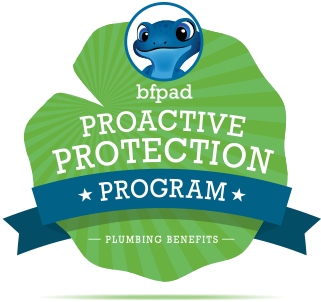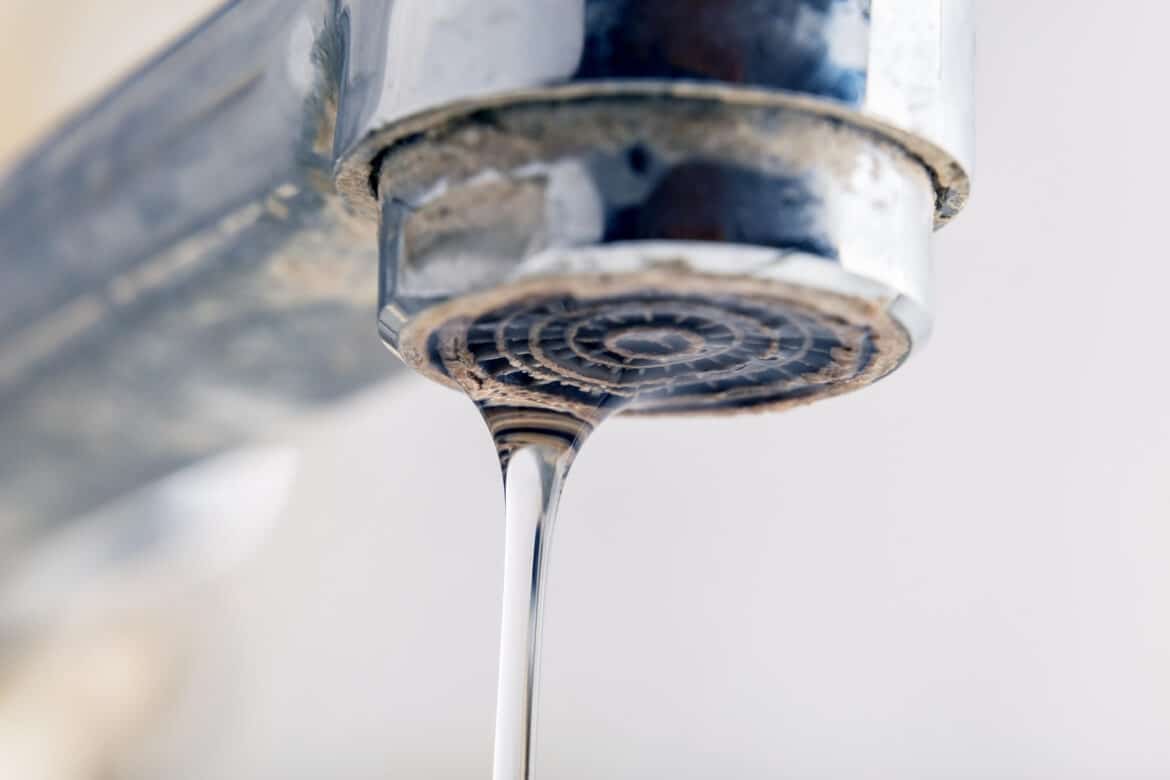
How to Manage Hard Water Issues
Understanding Hard Water
Definition and Causes
- Hard water contains high concentrations of minerals like calcium and magnesium. These minerals are picked up as water passes through limestone and chalk deposits.
- Common in many parts of the world, including many areas in the United States.
Signs of Hard Water
- Difficulty in getting soap to lather
- Spots on dishes and glassware
- Scale buildup on faucets and appliances
- Dull, stiff laundry
Testing for Hard Water
Home Testing Methods
- Soap Test: Shake water and soap in a bottle. Hard water results in fewer suds.
- DIY Kits: Available at hardware stores, these can measure hardness levels.
- Professional Testing: Consider a lab analysis for a detailed mineral breakdown.
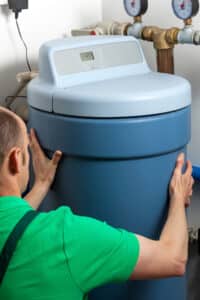
Solutions for Hard Water
Water Softeners
- The most effective solution, water softeners replace calcium and magnesium ions with sodium or potassium.
- Types include salt-based ion exchange, salt-free conditioners (e.g., TAC and NAC systems), and magnetic or electronic descalers.
Vinegar for Appliances and Fixtures
- Regularly clean appliances and faucets with vinegar to remove mineral buildup.
- Useful for kettles, coffee makers, shower heads, and faucets.
Filter Systems
- Installing whole-house or point-of-use filters can help reduce hardness in water directly from your taps.
- Consider options like reverse osmosis or charcoal filters for drinking water.
Impact of Hard Water
On Household Appliances
- Shortens lifespan and efficiency due to scale buildup.
- Can lead to higher energy costs as appliances work harder.
On Personal Health
- Can exacerbate skin conditions such as eczema due to soap residue.
- Makes hair dull and more prone to damage.
Environmental Considerations
- Salt-based softeners discharge brine into waste systems, which can be an environmental concern.
- Salt-free systems offer a more eco-friendly alternative by not using chemicals.
Implementing Solutions
Choosing a Water Softener
- Consider water hardness level, budget, and environmental impact.
- Check for certifications and warranties to ensure quality and reliability.
Installation
- DIY installation is possible with basic plumbing knowledge, but professional installation ensures optimal performance and warranty coverage.
Maintenance
- Regularly check salt levels in salt-based softeners.
- Clean resin tanks and replace filters as needed.
Local Considerations for Lewisville
- Research the specific water hardness in your area by contacting local water authorities or testing your water.
- Consider local vendors for purchasing and servicing water softeners to ensure they are familiar with regional water characteristics.
Have you ever wondered why your soap doesn’t lather well or why your dishes come out with spots? The answer might be hard water.
Hard water is water that contains high levels of minerals, particularly calcium and magnesium. These minerals accumulate as water travels through the ground, picking up elements from soil and rocks. Managing hard water is crucial because it affects many aspects of daily life, from personal grooming to maintaining household appliances.
What Causes Hard Water?
Mineral Content Explanation
Hard water is primarily caused by high levels of minerals, specifically calcium and magnesium. When water passes through limestone, chalk, or gypsum deposits, it picks up these minerals. The higher the concentration of these minerals, the “harder” the water becomes.
Common Sources of Hard Water
Common sources of hard water include underground aquifers and natural springs. These sources often contain significant amounts of dissolved calcium and magnesium, which are picked up as the water moves through the earth. Municipal water supplies in areas with high mineral content also tend to have hard water, affecting many households and businesses.
Identifying Hard Water in Lewisville
Signs of Hard Water in Home and Appliances
Identifying hard water in your home is essential for managing its effects. Common signs include:
- Soap Scum and Poor Lather: Hard water prevents soap from lathering properly, leaving a residue on your skin and in your shower.
- Spotty Dishes and Glassware: After washing, dishes and glassware may appear cloudy or spotty.
- Scale Build-Up: Appliances like kettles and coffee makers develop a white, chalky residue from the mineral deposits.
- Stiff Laundry: Clothes washed in hard water often feel rough and appear dull.
Specifics for Lewisville Regions: 75029, 75057, 75067, 75077
In Lewisville, the water hardness can vary, but many residents in the zip codes 75029, 75057, 75067, and 75077 experience issues associated with hard water. These include frequent scale build-up in plumbing and appliances, leading to higher maintenance costs and reduced appliance lifespan. It’s important for residents in these areas to be aware of the signs and take appropriate action.
Problems Caused by Hard Water
Impact on Plumbing and Appliances
Hard water can wreak havoc on your plumbing and appliances. The mineral deposits, or scale, build up in pipes, reducing water flow and causing clogs. This build-up also affects water heaters, dishwashers, and washing machines, decreasing their efficiency and lifespan. Over time, you may notice increased energy bills and the need for more frequent repairs.
Effects on Skin and Hair
Hard water doesn’t just affect your home; it impacts your personal care as well. The high mineral content can leave your skin feeling dry and irritated. Soap doesn’t lather well, making it difficult to rinse off completely, which can lead to clogged pores and dull skin. Similarly, hard water can make your hair feel dry, brittle, and prone to breakage, as it prevents shampoos and conditioners from working effectively.
Laundry and Cleaning Issues
Laundry washed in hard water often feels stiff and looks dull due to the mineral residues left behind. You may need to use more detergent to get your clothes clean, which can become costly over time. Hard water also makes cleaning tasks harder, leaving spots on dishes and fixtures and requiring more effort to achieve a clean, shiny finish.
Testing for Hard Water
Simple Home Tests
Testing your water for hardness can be done easily at home. Here are some simple methods:
- Soap Test: Fill a bottle with tap water, add a few drops of liquid soap, and shake it. If the water doesn’t produce a lot of suds and looks cloudy, you likely have hard water.
- Test Strips: Available at hardware stores, these strips can be dipped in your water to indicate hardness levels by changing color.
- Visual Inspection: Look for white, chalky deposits around faucets, in kettles, or on showerheads.
Professional Testing Methods
For a more accurate assessment, professional testing is recommended. Here are a few methods:
- Laboratory Testing: Collect a sample of your water and send it to a certified lab. They will provide a detailed report on the mineral content.
- Water Testing Kits: These kits offer a more precise measurement of hardness and other water quality parameters.
- Local Water Testing Services: Many companies offer in-home water testing services, providing a comprehensive analysis and recommendations for treatment options.
Health Implications of Hard Water
Benefits of Mineral Content
Hard water contains essential minerals like calcium and magnesium, which can have health benefits. These minerals contribute to stronger bones and teeth and support heart health. Drinking hard water can be a minor but useful source of these nutrients, supplementing your diet naturally.
Potential Health Concerns
Despite the benefits, hard water can also cause some health concerns. The high mineral content can lead to dry skin and hair, as it prevents soaps and shampoos from rinsing off completely. For individuals with sensitive skin or conditions like eczema, hard water can exacerbate symptoms. Additionally, hard water might contribute to the formation of kidney stones in susceptible individuals due to its high calcium content.
Managing Hard Water in Lewisville
Local Solutions and Services
Residents of Lewisville have several options for managing hard water. Local plumbing companies offer water softening services to help reduce mineral content. These professionals can assess your home’s water and recommend the best treatment options, such as installing a water softener. It’s important to choose a company with experience in dealing with the specific water quality issues in Lewisville.
Specific Advice for Residents in 75029, 75057, 75067, 75077
For residents in the 75029, 75057, 75067, and 75077 zip codes, addressing hard water is crucial due to the prevalent mineral content. Here are some tailored tips:
- Regular Maintenance: Schedule regular inspections of your plumbing system to prevent scale build-up and clogs.
- Install Water Softeners: Consider installing a whole-house water softener to reduce mineral content and extend the lifespan of your appliances.
- Use Specialized Cleaners: Utilize cleaning products designed to handle hard water deposits, which can help keep your fixtures and appliances in good condition.
- Consult Local Experts: Engage with local water treatment specialists who understand the unique challenges of Lewisville’s water.
Water Softening Methods
Overview of Water Softeners
Water softeners are devices designed to remove minerals like calcium and magnesium from hard water. This process, known as ion exchange, involves replacing these minerals with sodium or potassium ions, effectively “softening” the water.
Salt-Based Ion Exchange Systems
Salt-based ion exchange systems are the most common type of water softeners. These systems use resin beads charged with sodium ions to attract and replace the calcium and magnesium ions in the water.
As hard water flows through the system, the minerals are trapped, and softened water exits. Periodically, the system regenerates by flushing the resin beads with a saltwater solution, which restores their sodium charge.
Salt-Free Systems (TAC, NAC)
Salt-free water softeners, such as Template Assisted Crystallization (TAC) and Nucleation Assisted Crystallization (NAC), do not remove minerals but instead change their structure.
These systems use a catalytic media to transform the minerals into microscopic crystals that remain suspended in water. This prevents the minerals from forming scale on surfaces. Salt-free systems are low maintenance and environmentally friendly, as they do not require salt or produce wastewater.
Choosing the Right Water Softener
Factors to Consider
When selecting a water softener, consider the following factors:
- Water Hardness Level: The hardness level of your water will determine the type and size of the softener you need.
- Household Size: The number of people in your home affects water usage and, consequently, the capacity required for the softener.
- Budget: Water softeners vary in cost, from the initial purchase to installation and maintenance. Consider your budget and long-term savings.
- Maintenance Requirements: Some systems require more maintenance than others. Assess how much time and effort you’re willing to invest.
- Environmental Impact: Consider the environmental footprint of the softener, including water and salt usage.
Comparison of Different Types
- Salt-Based Ion Exchange Systems:
- Pros: Effective at removing minerals, improving water quality.
- Cons: Requires regular salt refills and produces brine discharge.
- Salt-Free Systems (TAC, NAC):
- Pros: Low maintenance, environmentally friendly, no salt required.
- Cons: Does not remove minerals, may be less effective in extremely hard water.
- Magnetic and Electronic Softeners:
- Pros: Easy to install, no chemicals or salt needed.
- Cons: Limited effectiveness, not suitable for very hard water.
- Reverse Osmosis Systems:
- Pros: Comprehensive filtration, improves taste and removes contaminants.
- Cons: Expensive, requires regular filter changes, water wastage.
Installation and Maintenance of Water Softeners
DIY vs Professional Installation
When installing a water softener, you can choose between doing it yourself or hiring a professional. Opting for a DIY installation can save you money and give you a sense of accomplishment. However, it requires technical knowledge and precision.
Mistakes during installation can lead to issues with the system and may void the warranty. On the other hand, professional installation ensures that the system is set up correctly and efficiently, preserving the warranty. Though it comes with a higher upfront cost, the expertise and peace of mind it provides are often worth the investment.
Routine Maintenance Tips
Maintaining your water softener is key to its longevity and performance. Regularly check the salt levels in the brine tank to ensure it’s adequately filled, as this is crucial for the softening process.
Cleaning the brine tank periodically helps remove sludge or salt bridges that can form and hinder the system’s function. Additionally, inspecting the system for leaks or corrosion ensures early detection and repair of potential issues.
If your system includes pre-filters or other filters, replacing them according to the manufacturer’s recommendations keeps the system running smoothly. For optimal performance, consider having your water softener professionally serviced once a year.
Alternative Solutions to Water Softeners
Magnetic and Electronic Softeners
Magnetic and electronic water softeners are innovative alternatives to traditional systems. These devices use electromagnetic fields to alter the behavior of minerals in the water, preventing them from forming scale on surfaces.
While they are easy to install and require no chemicals or salt, their effectiveness can be limited, especially in areas with very hard water. These systems are ideal for households seeking a low-maintenance solution without the need for regular salt refills.
Reverse Osmosis Systems
Reverse osmosis (RO) systems provide a comprehensive solution to water hardness and other contaminants. By forcing water through a semipermeable membrane, RO systems remove not only calcium and magnesium but also a wide range of impurities, including lead, chlorine, and other harmful substances.
This results in cleaner, better-tasting water. However, reverse osmosis systems can be expensive and require regular maintenance, including filter changes. Additionally, they tend to produce a significant amount of wastewater, which can be a concern for environmentally conscious homeowners.
Showerhead Filters
For those looking to mitigate the effects of hard water on skin and hair, showerhead filters are a practical and affordable option. These filters attach directly to your showerhead and remove minerals and chlorine from the water, providing a gentler wash. While they don’t address hard water throughout the entire house, they can significantly improve the showering experience, making your skin and hair feel softer and less dry.
Preventing Hard Water Problems
Regular Maintenance Routines
Preventing hard water problems requires consistent maintenance of your plumbing system and appliances. Regularly descaling appliances like water heaters, kettles, and coffee makers can prevent mineral build-up that reduces efficiency and lifespan.
Additionally, flushing out your water heater every few months can help remove accumulated sediment. Installing faucet aerators and showerheads with built-in filters can also reduce scale deposits, ensuring smoother water flow and prolonging the life of your fixtures.

Tips for Protecting Plumbing and Appliances
To protect your plumbing and appliances from hard water damage, consider the following tips:
- Use Water Softeners: Installing a water softener can significantly reduce the mineral content in your water, preventing scale build-up and enhancing the efficiency of your appliances.
- Vinegar Solutions: Regularly cleaning faucets, showerheads, and other fixtures with vinegar can dissolve mineral deposits and keep them functioning properly.
- Hot Water Flushes: Periodically running hot water through your pipes can help dislodge any mineral deposits that may have formed.
- Professional Inspections: Schedule regular inspections with a plumber to check for signs of hard water damage and address any issues promptly.
By implementing these practices, you can mitigate the effects of hard water and maintain the efficiency and longevity of your plumbing and appliances.
Choosing the Right Professional for Water Softener Installation
Importance of Professional Expertise
Selecting the right professional to install your water softener is crucial for ensuring optimal performance and longevity. Professionals have the expertise to assess your specific water hardness levels, recommend the best system for your needs, and ensure proper installation. A well-installed system operates efficiently and reduces the risk of issues down the line.
What to Look for in a Professional
When choosing a professional for water softener installation, consider the following factors:
- Experience and Credentials: Ensure the installer has relevant experience and proper certifications. This guarantees they have the necessary skills and knowledge.
- Reputation: Check online reviews and ask for references. A reputable professional should have positive feedback from previous customers.
- Service Range: Choose a provider that offers a comprehensive range of services, including installation, maintenance, and repairs. This ensures you have support throughout the lifespan of your system.
- Local Knowledge: A local professional familiar with Lewisville’s water conditions can offer tailored advice and solutions specific to the region.
- Warranty and Support: Verify that the professional offers a warranty on their work and provides ongoing support for maintenance and troubleshooting.
Benefits of Hiring a Local Professional in Lewisville
Hiring a local professional in Lewisville offers several advantages. They understand the specific challenges of the water quality in the area and can recommend the most effective solutions.
Additionally, a local professional can provide prompt service, which is crucial for addressing any issues that may arise. By supporting local businesses, you also contribute to the community’s economy.
FAQs
-
What is hard water and how does it affect my home?
Hard water contains high levels of minerals, particularly calcium and magnesium. It can cause scale build-up in plumbing, reduce the efficiency and lifespan of appliances, and leave spots on dishes and fixtures.
-
How can I tell if I have hard water in Lewisville?
Signs of hard water include soap that doesn’t lather well, spotty dishes and glassware, scale build-up on appliances, and stiff laundry. Residents in Lewisville’s 75029, 75057, 75067, and 75077 zip codes often experience these issues.
-
Are there health risks associated with hard water?
While hard water contains beneficial minerals like calcium and magnesium, it can also cause dry skin and hair. For some people, it may exacerbate skin conditions such as eczema.
-
What is the best way to manage hard water in my home?
Installing a water softener is the most effective way to manage hard water. Options include salt-based ion exchange systems, salt-free systems, and magnetic or electronic softeners. Each has its pros and cons, so choose based on your specific needs and budget.
-
Can I install a water softener myself or should I hire a professional?
You can install a water softener yourself if you have the necessary technical skills. However, professional installation ensures that the system is set up correctly and maintains the warranty. It’s often worth the investment for peace of mind.




